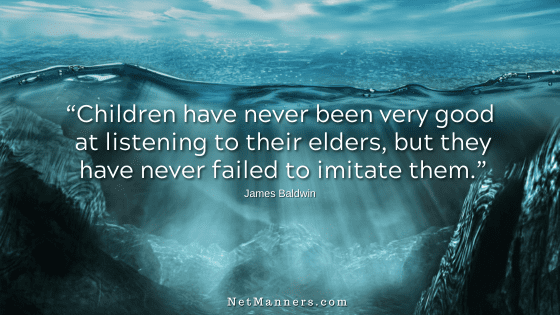No Place for Yelling in Emails

Why do emailers increase the font size, use boldface, and change the text color from black to red? Those who ask me about that know the answer. However, they want to be sure before reacting.
Some wonder if it is just formatting for the sake of formatting. After all, isn’t typing in caps considered shouting online? Well, that could be the case. However, context is everything and needs to be considered before jumping to conclusions.
For example, the headings in this post are larger and bolded. But it’s an article where this type of formatting is expected. Headlines do not contain any implication of emotion by being a headline alone.
Now, if I turned parts of it red, a known aggressive color — what would you think? That I’m making a point, right? Right!?
See what I did there? Didn’t you raise your voice in your head when reading that? To say there was no meaning behind that extra formatting would be ignoring our lying eyes.
I’ve written quite a bit about this topic and concluded that certain folks are aggressive communicators. It’s easy, after all, because you are not face-to-face.
Some have asked if the same applies to other online forms of communication. Is yelling on forums, groups, and message boards also considered yelling? Should they respond in kind? (No, here’s the post on that!)
So, you didn’t “mean to come off that strongly”?
When the “red bolder” receives responses based on this specific formatting in their communications, they are often surprised at the reaction. Claiming the increased emphasis was not their intent.
Emphasis was their intent. Then, why else would they increase the font size, bold the words, and turn them red? The sender specifically made three formatting actions to increase the emphasis of the selected words.
They made a conscious effort to do this. The downside is that the amount of emphasis perceived by their actions is out of the author’s control. That’s what surprises them.
This is where the nuances of communicating online — I call them enuances — come into play. When making a statement and then modifying the size, color, and weight to stand out from the rest of your message, you willingly leave the perceived level of emphasis to be determined by the other side.
Until after the fact, many do not realize that the level of emphasis can vary based on how well those reading your message know you or not. Or their overall opinion of you based on previous communications.
That is why it is wise to consider the overall tone of the comments and the conversation before reacting.
My Observation Over Decades
When Internet communication first began, text modification capability was minimal. One significant change one could use to show emphasis or “shout” was typing in all caps. And even with that, folks typed in caps and were surprised when the other side didn’t appreciate being yelled at.
The intent is intent. Caps are a way to add emphasis by “shouting.” Making certain words bigger, bolder, and red would indicate a strong comment or make a point.
Adding formatting when used selectively can undoubtedly add to the impression one is raising their “voice” or upset. If you ask anyone to read an email with this type of formatting aloud, they will almost always raise their voice when reading large, bolder text. Then they’ll raise their voice even further when they hit that red text.
How to Handle Aggressive Emailers
Aggressive communication, especially from friends and family, can be challenging. Here’s a constructive approach you might consider:
Remember, you deserve to be treated with respect, even in challenging situations with friends and family.
The Moral of the Story
Learning to communicate without formatting is a skill worth your effort to hone. To communicate with clarity simply by choosing your words carefully without relying on bolding, font size, caps, or colors is the true sign of a skilled communicator.
That skill will benefit your relationships by avoiding misunderstandings in personal and professional email communication. Words have meaning, and how you type them will amplify that meaning and relay intent.






